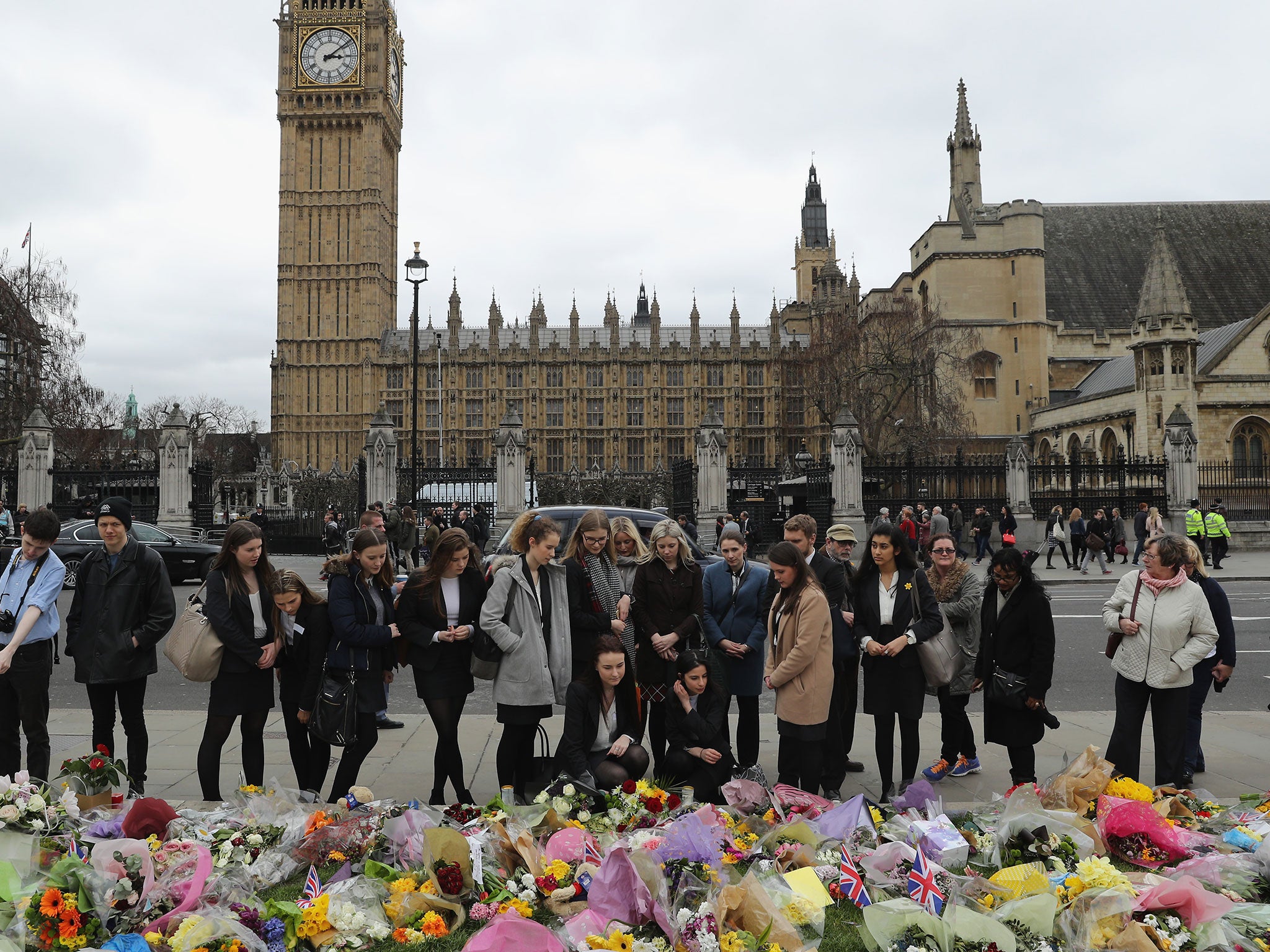Westminster attack inquests - latest updates: Coroner gives conclusions on how victims of terror attacker Khalid Masood died

The inquests into the deaths of the victims of the Westminster attack are due to conclude.
Chief coroner Mark Lucraft QC is due to give his conclusions at the Old Bailey on the deaths of four civilians and police officer Keith Palmer, who were murdered by terrorist Khalid Masood.
He will consider whether factors including security at the Houses of Parliament, the lack of barriers on Westminster Bridge, police body armour and security service investigations into Masood played a role in their deaths.
Please allow a moment for the live blog to load.
On Tuesday the court heard closing submissions, with Jonathan Hough QC, for the coroner, saying the inquests should conclude all five victims were unlawfully killed.
He said: “Each was murdered in a terrorist atrocity which was no less brutal for its lack of sophistication.”
Masood, 52, drove into pedestrians on Westminster Bridge on March 22 last year, killing American tourist Kurt Cochran, 54, retired window cleaner Leslie Rhodes, 75, Aysha Frade, 44, and Romanian tourist Andreea Cristea, 31.
He then stormed through gates near the Houses of Parliament and fatally stabbed Pc Palmer with two knives.
In his closing argument, Gareth Patterson QC, for families of victims on the bridge, urged the coroner to make a report on the circumstances of the case to “protect the public”.
On the role of MI5, whose knowledge of Masood has been heavily scrutinised, he said: “We do think there is room for improvement in terms of decision-making.”
He suggested security services should look again at when to investigate suspects and when to stop, and to take account of violent backgrounds.
Mr Patterson also called for the Government to “try again” with tightening rules for hiring cars.
Dominic Adamson, representing PC Palmer's widow Michelle, said that there was “a systematic failure” in protecting unarmed officers on guard at the Palace of Westminster.
He told the coroner: “In my submission it is very clear that you can be satisfied that as a result of those failures the consequences for Pc Palmer were that there was a substantial loss of the opportunities for him to be saved.”
No firearms officer had been near Carriage Gates, where Pc Palmer was on duty, for nearly an hour before Masood's attack.
Susannah Stevens, representing the officer's family, said: “If there had been authorised firearms officers present at that time, in our submission, on the balance of probabilities they would have been able to prevent a loss of an opportunity of saving Pc Palmer's life.
”Or to put it another way, on the balance of probabilities, their absence contributed to Pc Palmer's death.“
The court will hear further closing submissions in the morning, before the coroner begins giving his conclusions.
Mr Hough says there may have been a "real prospect" that PC Palmer would not have moved towards the gates if he had armed support, that at least one officer would have stayed there, or that they would have returned quickly to the gate after seeing Masood running towards it
"There must be a real prospect that if one or more of them had been at the gate that one of them would have taken an effective shot."
Mr Hough says that if Article 2 is engaged the coroner's submissions must "address and resolve the key issues" in PC Palmer's death. It does not apply to the deaths of the four victims who were fatally struck by Masood's car on Westminster Bridge
Mr Hough says: "If you find that systematic defects probably contributed to PC Palmer's death, you should say so."
He concedes that it is a "challenging question involving some speculation...but that should not cause you to abandon the challenge of determining whether these deficiencies, if they are found to exist, were contributory to his death"
The coroner is now rising for an hour, when we will resume our live coverage
The coroner is back in court and about to start giving a summary of his conclusions
Judge Lucraft says "one of the most iconic" parts of the UK was attacked, while packed with tourists and people in the area for work or business.
"Each was going about their day as if it was any other day."
Judge Lucraft says he has met the families of the victims privately and praises them for their "great dignity".
He says the day was also "life-changing" for those injured but survived the attack.
"Men, women and young people are seen to have taken an impact on their bodies to the car...29 people received serious injuries in scenes described as some as carnage"
Judge Lucraft says Masood drove his car into pedestrians with "murderous intent".
"I am sure that one of the reasons more people did not die on the bridge is the quite overwhelming acts of those who responded" including doctors from St Thomas's and members of the public.
"Sadly some of the public chose to photograph and film rather than help."

